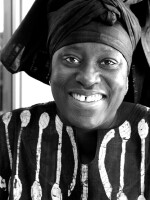ROBERT SIEGEL, host:
Pressure is mounting on Zimbabwe's President Robert Mugabe. Today at the United Nations, Secretary of State Condoleezza Rice questioned the validity of next week's presidential runoff in Zimbabwe.
Secretary CONDOLEEZZA RICE (U.S. Secretary of State): By its actions, the Mugabe regime has given up any pretense that the June 27 elections will be allowed to proceed in a free and fair manner. Regime supporters, including police, have killed more than 60 opposition supporters, injured thousands, and terrorized, intimidated or displaced many more.
SIEGEL: Washington's voice is just the latest in a chorus that includes human rights groups and African leaders, all doubting the credibility of Zimbabwe's upcoming election. NPR's Ofeibea Quist-Arcton reports.
OFEIBEA QUIST-ARCTON: The runoff next Friday is set to decide who will be Zimbabwe's next president: Robert Mugabe, who led this nation since independence in 1980, or opposition leader Morgan Tsvangirai. Tsvangirai claimed victory in elections in March, but official results said a second round was needed because neither won an outright majority. Since March, the opposition and human rights groups claim Mugabe's followers have unleashed a campaign of state-sponsored terror nationwide. In the latest violence, the bodies of four murdered opposition members were found today in the capital, Harari. However, Mugabe pins the attacks on Tsvangirai's opposition Movement for Democratic Change.
President ROBERT MUGABE (Zimbabwe): Sooner, rather later, we are going to accuse the party and the party leadership of being vicariously liable and responsible for those crimes of violence. And that has to stop.
QUIST-ARCTON: African leaders have begun taking a tougher line on Zimbabwe. Neighboring Botswana was first. But in recent days, other countries have been openly critical, including Kenya's Prime Minister Raila Odinga, who was himself in a disputed election that sparked violence in his country. Odinga is now calling for outside intervention in Zimbabwe.
Prime Minister RAILA ODINGA (Kenya): My view is that the time has come for the international community to act on Zimbabwe the way that they did in Bosnia. And what we need in Zimbabwe is simply an international peacekeeping force so that eventually, proper elections can be held.
QUIST-ARCTON: Despite the pressure, there is no sign that Mugabe is listening. He continues to lambaste as hostile Western governments like the US and Britain, the former colonial power. Lacing his election rally speeches with anti-Western rhetoric, Mugabe whips emotions with constant references to the vexatious issue of land. If you vote for the opposition, he implies, those pathetic puppets and Washington - as Mugabe calls them - will sell you Zimbabweans down the Suwannee.
Pres. MUGABE: Anyone who seeks to undermine our land reform seeks our challenge, angry challenge. We are prepared to fight for our country, to go to war for it.
QUIST-ARCTON: "Mugabe declares war" was the giant headline in one newspaper here in South Africa. Condoleezza Rice said today a line had been crossed.
Sec. RICE: Clearly, we have reached a point where broader, stronger international effort is needed.
QUIST-ARCTON: But how far are regional leaders or others prepared to go to halt the prospect of another African conflict?
Ofeibea Quist-Arcton, NPR News, Johannesburg. Transcript provided by NPR, Copyright NPR.






